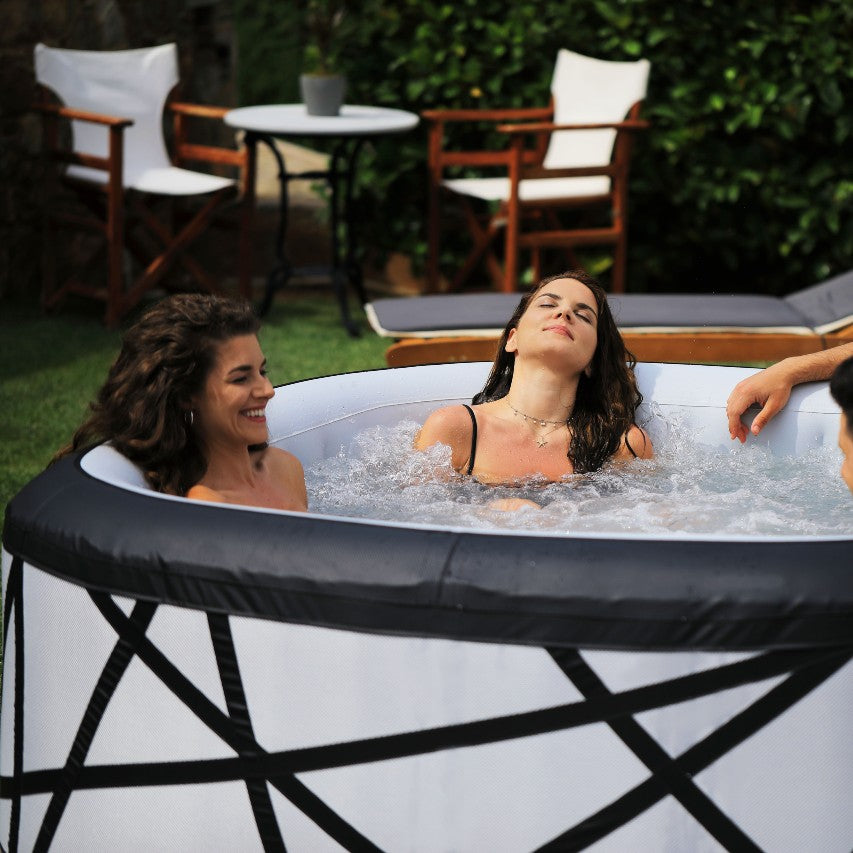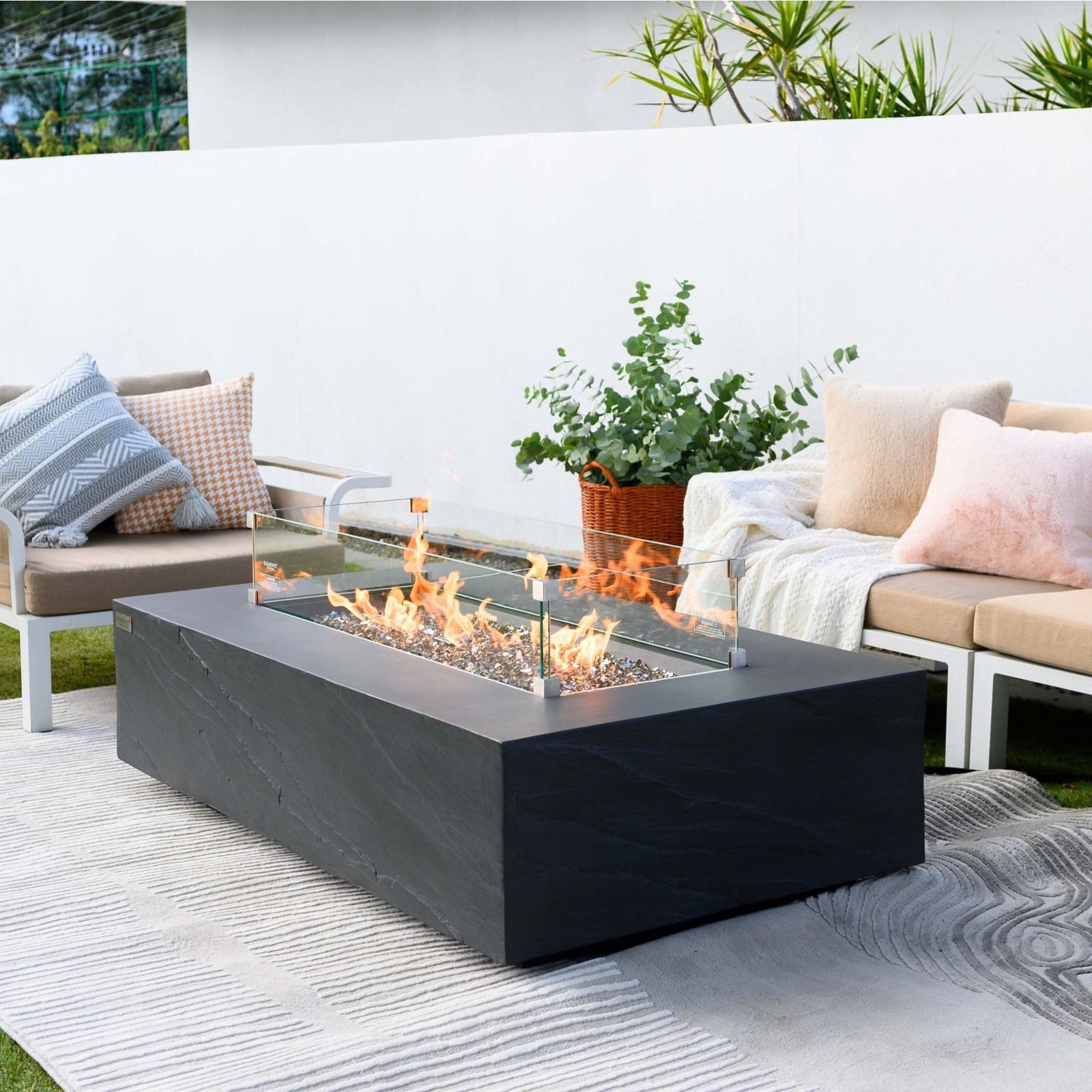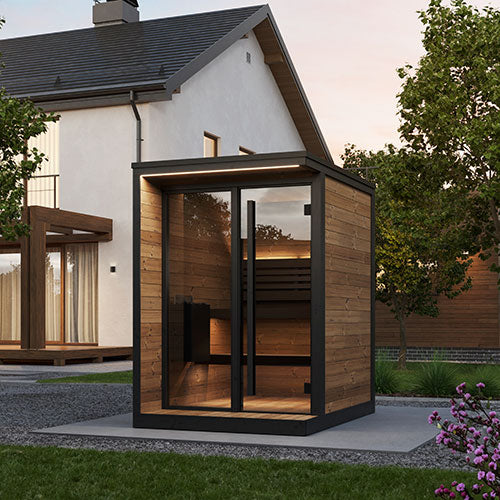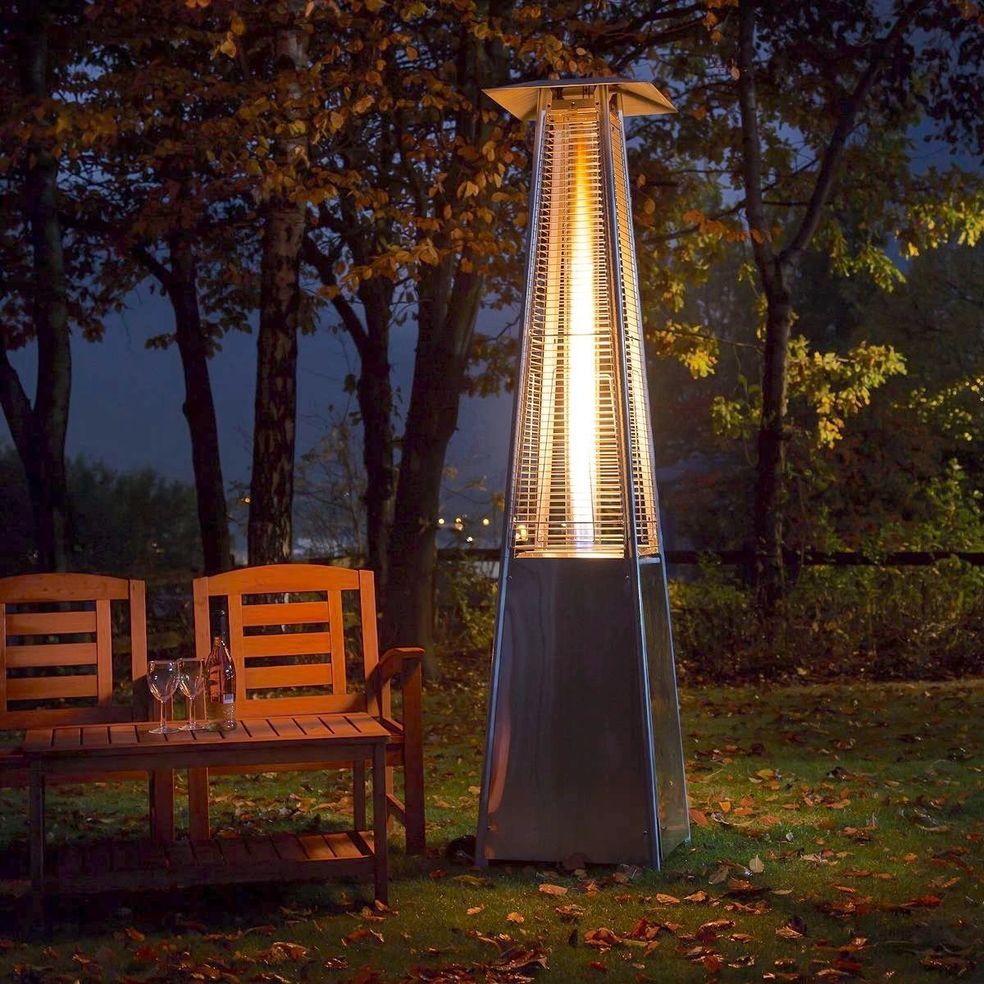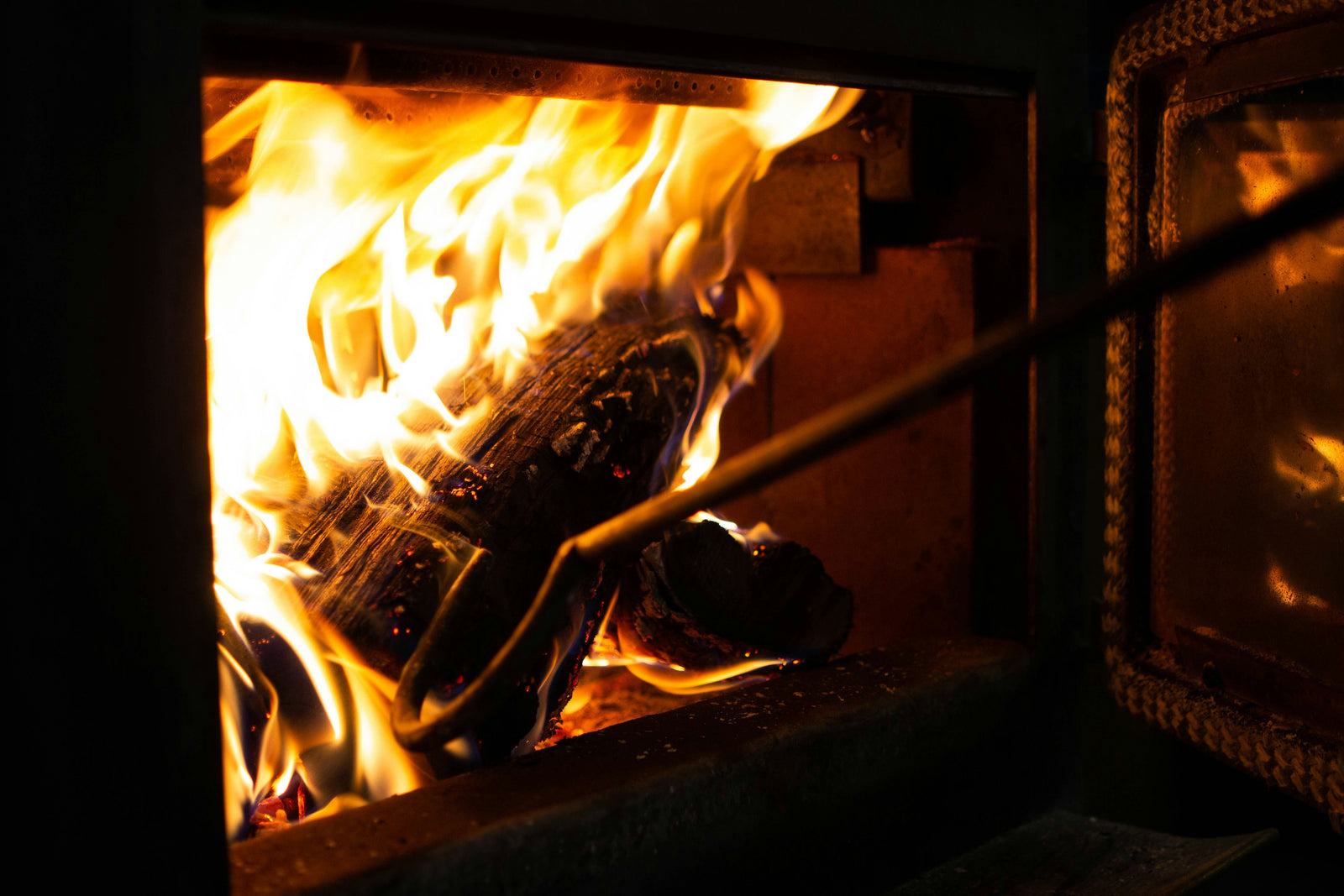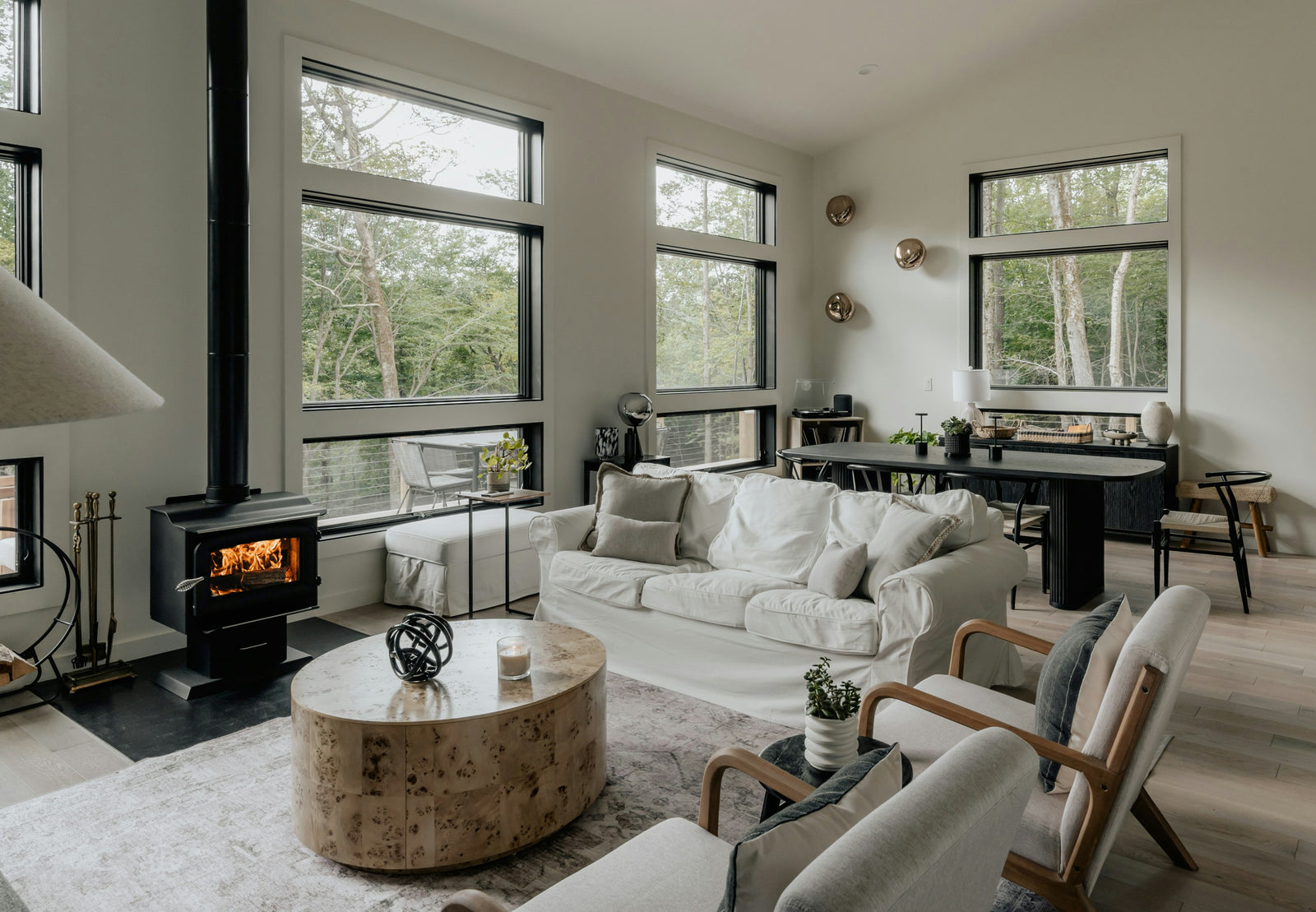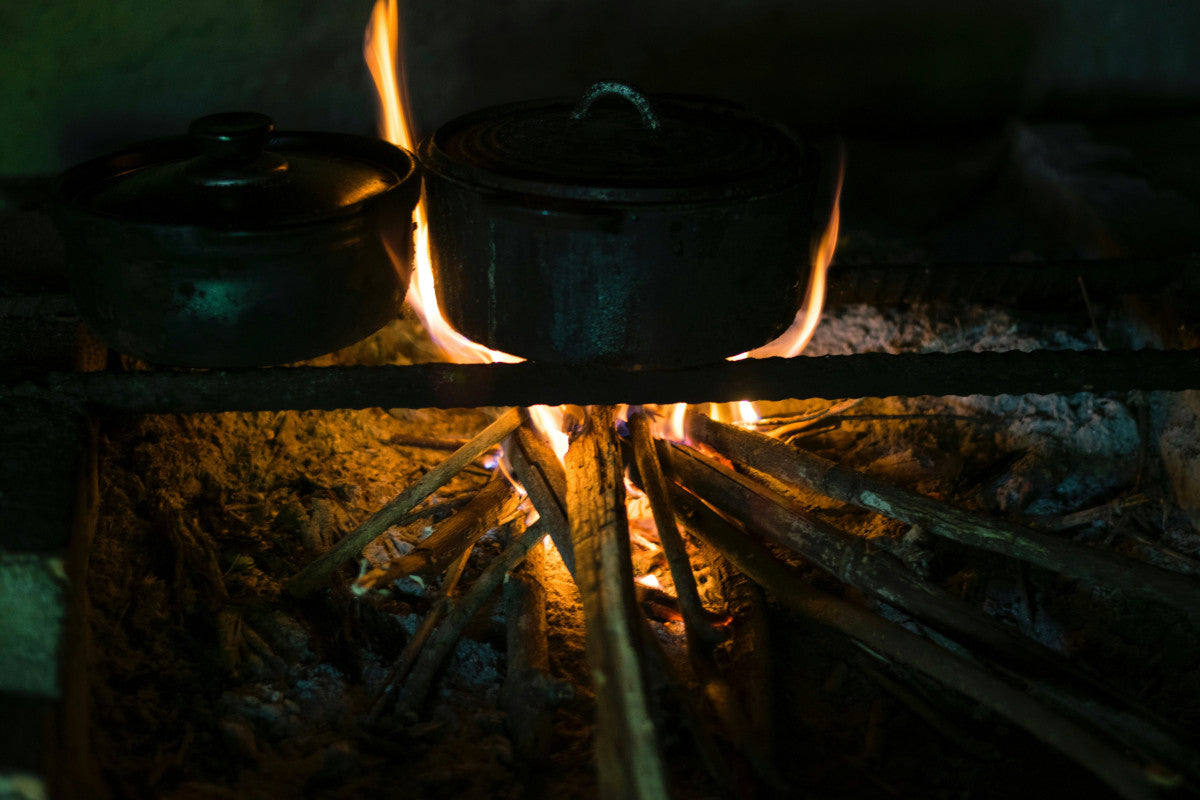Electric pool heat pumps are a game-changer for extending your swim season while reducing energy costs and minimizing environmental impact compared to other solutions, like gas or solar heaters.
But how does a pool heat pump work? They extract heat from the air, amplify it through a refrigeration cycle, and then transfer the increased heat to the pool water.
This process provides a consistent and reliable heat source, allowing for a longer and more enjoyable swimming season. We’ll dive deeper into the specifics of how these innovative pool heating devices work below to leave you with complete clarity on their interworkings.
If you decide that you want to invest in a pool heat pump yourself after reading, you’re in luck. We’ll offer tips on choosing the perfect solution right here at OutdoorDirect, where you gain access to the most trusted brand in the entire industry for more than 40 years: AquaCal.
So, learn how pool heat pumps work below to get started elevating your swimming enjoyment!
What is a Pool Heat Pump?
To truly appreciate how these pumps work it's important that you understand the key components that make them tick along with the different types you have at your disposal. So, let’s start with the basics of pool heat pump technology.
Components of a Pool Heat Pump
While there are many moving parts in a pool heat pump, these five are the most important for raising water temperature:
- Compressor: The heart of the heat pump, which compresses refrigerant gas, increasing its temperature.
- Evaporator Coil: Absorbs heat from the outside air, transferring it to the refrigerant inside the coil.
- Expansion Valve: Regulates the flow of refrigerant, allowing it to expand and cool before entering the evaporator.
- Condenser Coil: Transfers the heat from the compressed refrigerant to the pool water, heating it effectively.
- Fan: Circulates air over the evaporator coil to enhance the heat absorption process.
Different Types of Heating Solutions
An electric pool heat pump is just one of many different heating solutions for your pool - with gas heaters and solar heaters being the other two most common.
However, there are even different types of pumps under this umbrella. Knowing the pros and cons of each is key to appreciating how these work and choosing the right one:
- Air-source Heat Pumps: The most common type. It uses outside air as the heat source. Ideal for climates with moderate to warm temperatures.
- Water-source Heat Pumps: Utilize nearby water sources, like lakes or wells, to extract heat. These are more efficient in stable water temperature environments.
- Geothermal Heat Pumps: Extract heat from the ground, providing the most consistent and efficient heating regardless of air temperature, but with higher installation costs.
Advantages of Using a Pool Heat Pump
In general, a pool heat pump is typically the best way to warm your pool - it offers unparalleled energy efficiency, especially compared to traditional gas heaters. Rather than creating new heat, these devices harness the existing heat in the environment to generate heat.
In this sense, they’re also more eco-friendly than gas heaters. Heat pumps have a smaller carbon footprint which means you’re reducing greenhouse gas emissions, doing your part to preserve our planet.
Although the initial cost of a pool heat pump may be higher, you get what you pay for in the long run. Thanks to the efficiency we described earlier, heat pumps tend to have lower operational costs leading to long-term savings.
With proper pool heat pump installation and maintenance, pool heat pumps can last up to 15-20 years, providing a durable heating solution that stands the test of time. They’re stable and consistent in their operation, too, helping you enjoy a comfortable swimming temperature throughout the season.
You can learn more about the difference between a pool heat pump vs gas heater in our blog. For now, though, let’s get into the main topic on our agenda - how does a pool heat pump work?
How Does a Pool Heat Pump Work?

So, how does a heat pump pool heater work? We’ll cover everything from the concept of thermodynamics to heating cycles, efficiency factors, and more below to leave you with a solid grasp on the interworkings within these pumps.
The Thermodynamic Process
At the core of a pool heat pump's operation is the thermodynamic process, which follows the basic principles of heat transfer. This process involves moving heat from one location (the air surrounding the unit) to another (the pool water) using a refrigerant. Here’s how it works:
- Absorption of Heat: The cycle begins when the fan draws external air across the evaporator coil, which contains the cold refrigerant. The refrigerant absorbs heat from the air, transforming from a low-temperature liquid into a gas.
- Compression: The gaseous refrigerant then passes into the compressor, where its temperature and pressure are increased.
- Heat Transfer: The hot, compressed refrigerant moves to the condenser coil, where it comes into contact with the cooler pool water circulating through the coil. The heat from the refrigerant is transferred to the water, heating it up, while the refrigerant cools down and reverts to a liquid state.
- Expansion and Cooling: Finally, the cooled liquid refrigerant exits the condenser, passes through the expansion valve, which reduces its pressure and temperature, and returns to the evaporator to absorb heat again, continuing the cycle.
Heating Cycle Explanation
The heating cycle of a pool heat pump is a continuous loop that efficiently raises the temperature of your pool. The cycle's efficiency depends on the ambient temperature, as the system uses the external air's heat, making it most effective in mild to warm climates.
The cycle is designed to maintain consistent pool temperatures, adapting to varying conditions to ensure energy-efficient operation.
Energy Source and Consumption
Pool heat pumps utilize electricity, but unlike conventional electric heaters that generate heat directly, they use electricity to move heat from one place to another.
This distinction is crucial as it makes heat pumps more energy-efficient, consuming less electricity compared to the amount of heat they produce.
The efficiency of a pool heat pump is often measured by its Coefficient of Performance (COP), indicating the ratio of heat output to electrical energy input. We’ll talk more about choosing a unit with a solid COP rating shortly.
Temperature Regulation and Control
Pool heat pumps are primarily designed to raise the water temperature, but they also play a key role in maintaining optimal water temperatures.
Temperature control in a pool heat pump is achieved through a thermostat, which monitors the pool water’s temperature and adjusts the heating cycle accordingly.
You simply set the desired temperature and the heat pump will cycle on and off to maintain this setting, ensuring consistent and comfortable water temperatures.
Efficiency Factors
Whether it’s an AquaCal vs Hayward heat pump or Pentair, several factors influence the efficiency of a pool heat pump:
- Ambient Air Temperature: The warmer the air around the heat pump, the more efficiently it can operate, as it can extract more heat with less energy.
- Humidity Levels: Higher humidity increases the air's heat content, making it easier for the heat pump to warm the pool water.
- Proper Installation and Maintenance: Correct installation and regular maintenance are key for optimal efficiency. This includes placing the unit in an area with adequate airflow and regular servicing to keep the components clean and functional.
- Quality of Equipment: High-quality heat pumps with advanced features like variable speed compressors and fan motors can adapt to changing conditions, enhancing efficiency and reducing operational costs. While you’ll pay more for the best pool heat pump, it delivers superior efficiency and long-term savings in the end.
Want to Invest in a Pool Heat Pump to Extend Your Swimming Season and Enjoy Your Outdoor Space More?

There you have it - everything you need to know about how pool heating pumps work. The only thing left to do now is determine whether or not this is the ideal solution for your specific needs. From there, you can count on OutdoorDirect to help you find the perfect pump for your home.
Why Shop at Outdoor Direct?
OutdoorDirect is your one-stop shop for all things outdoor enjoyment - from patio essentials to pool heat pumps.
We have earned the trust of thousands of homeowners by offering the best selection of products at the lowest possible prices while backing the experience up with world-class customer support along the way.
We’re proud to carry AquaCal heaters, which are the pinnacle of pool heating. This manufacturer has been the #1 choice since 1981 because it makes its pumps to the highest standards right here in the USA.
With unparalleled craftsmanship and durable materials, these pumps are as reliable as it gets. You can order yours with confidence knowing it's backed by a 7-year warranty, too.
Plus, you gain access to our price-matching guarantee, free shipping, and expert customer service to help you choose the right solution if need be. Just get in touch with us via live chat or phone call and we’ll offer a personalized recommendation. Or, use our intuitive quiz for a quick suggestion! We’ll offer more tips on choosing the right unit in the meantime.
Tips on Choosing the Right Pool Heat Pump
Whether you need a small pool heat pump or a commercial pool heat pump, you can rest assured we’ve got the solution you need. Our solutions range from as small as 52k BTUs all the way up to 143k BTUs. This chart below shows you which aligns with the needs of your specific pool:
However, the size of your pool isn’t the only consideration. You also have to think about the weather where you live. In cooler climates, you might need a heat pump with a higher BTU rating to efficiently maintain a comfortable temperature.
The efficiency of your pump also plays a pivotal role - like we said earlier, this is where understanding COP ratings is important. The higher, the better, as this means the pump generates more heat per unit of electricity, offering better long-term savings. At OutdoorDirect, we offer units ranging from 5.5-7.1.
Assess how frequently you'll be using the pool and under what conditions to ensure the chosen heat pump meets your heating demands efficiently.
Still not sure which heat pump is right for you?
HeatWave SuperQuiet vs TropiCal: Which is Right For You?
We carry two different models within the AquaCal series: the AquaCal HeatWave SuperQuiet Heat Pump and the AquaCal TropiCal Heat Pump. Both are well-built, long-lasting units with tons of intuitive features. You can’t go wrong either way - but which is right for you?
The HeatWave SuperQuiet is great if you are willing to pay a bit more for better performance. As the name suggests, it produces less noise so you’ll enjoy your time outdoors a lot more. These units are also packed with advanced features like digital controls, smart operation capabilities, and robust heating performance.
On the other hand, the TropiCal series is a more budget-friendly solution, but make no mistake - it’s still big on performance! These are best suited for small to medium-sized pools, providing reliable heating with a focus on cost-effectiveness and durability. They are great for consistent performance in moderate climates.
Again, our team is on standby to help you choose the right solution - whether you’re looking for an above-ground pool heat pump, a pool heater chiller combo, or even just an AquaCal chiller.
Learn about pool heat pump sizing to feel confidentin making the right choice. Or, get in touch today and take the first step towards extending your swimming season!
Final Thoughts on How Pool Heat Pumps Work
So, how does a pool heat pump work? In closing, these efficient heating solutions leverage the ambient air temperature to extend your swimming season while minimizing energy costs and environmental impact.
Understanding their operation, from the thermodynamic process to the intricacies of installation and maintenance, empowers you to optimize their performance.
Whether you opt for the quiet sophistication of the HeatWave SuperQuiet series or the cost-effective reliability of the TropiCal line, the right heat pump is just a click away at OutdoorDirect. So, shop now and set yourself up for the most enjoyable swim season yet!
Still not sure which heat pump is right for you?

